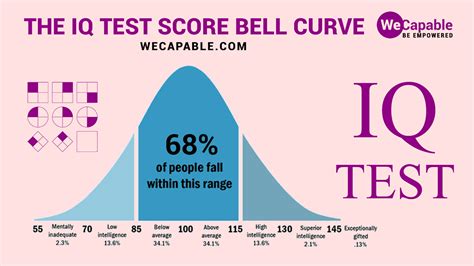
Only a select few possess the vocabulary prowess to define a list of 34 uncommon words, according to a recent quiz circulating online, challenging individuals to test their vocabulary and, purportedly, their intelligence quotient (IQ). The quiz, featured on various platforms, presents words rarely encountered in everyday conversation, leaving many stumped and sparking debate about the correlation between vocabulary size and overall intelligence.
The online challenge, which has garnered significant attention on social media, prompts users to define words such as “kench,” “muliebrity,” and “pervicacious.” While the quiz aims to be a lighthearted test of linguistic ability, it also raises questions about the nature of intelligence and the limitations of vocabulary-based assessments. Experts suggest that while a strong vocabulary can be indicative of certain cognitive abilities, it is not the sole determinant of intelligence.
The quiz’s difficulty stems from its focus on obscure and archaic terms, many of which are no longer in common usage. Participants are presented with multiple-choice options, requiring them to select the correct definition from a list of potential answers. The high failure rate has led some to question the validity of the quiz as a measure of intelligence, while others view it as a fun and engaging way to expand their vocabulary. The test highlights the vastness of the English language and the ongoing evolution of vocabulary, as well as provides a stark reminder that there are countless words beyond the lexicon of everyday use.
One of the key criticisms of the quiz is its emphasis on rote memorization of vocabulary, which may not accurately reflect an individual’s ability to think critically or solve complex problems. Intelligence, as defined by many psychologists, encompasses a broader range of cognitive skills, including reasoning, problem-solving, and adaptability. While a strong vocabulary can undoubtedly be an asset in communication and comprehension, it is only one piece of the puzzle when it comes to overall intelligence.
The quiz has also sparked a discussion about the role of education and socioeconomic background in vocabulary development. Individuals from privileged backgrounds may have greater access to resources and opportunities that foster vocabulary growth, such as exposure to literature, formal education, and intellectually stimulating environments. This raises concerns about the fairness of using vocabulary quizzes as a measure of intelligence, as they may inadvertently penalize individuals from less privileged backgrounds.
Despite its limitations, the vocabulary quiz has undeniably captured the public’s attention, prompting many to reflect on their own linguistic abilities and the complexities of intelligence. Whether viewed as a serious assessment or a lighthearted game, the quiz serves as a reminder of the power of language and the ongoing quest to understand the human mind.
The online quiz’s popularity reflects a broader cultural interest in self-assessment and the desire to quantify abstract concepts such as intelligence. In an era of standardized testing and data-driven analysis, individuals are increasingly drawn to tools that offer a seemingly objective measure of their abilities. However, it is important to approach such assessments with a critical eye, recognizing their inherent limitations and potential biases.
The quiz’s selection of obscure words is a significant factor contributing to its difficulty. Many of the terms included are derived from Latin, Greek, or other foreign languages, and are rarely used in modern English. This means that even individuals with a strong vocabulary may struggle to define these words without prior exposure or specialized knowledge.
For example, “kench” refers to “to salt and pile fish in a kench,” while “muliebrity” signifies “womanhood, the state of being a woman.” Similarly, “pervicacious” means “extremely obstinate; willful.” These words are not commonly encountered in everyday conversation or writing, making them challenging to define even for well-read individuals. The test underscores that vocabulary is not static but rather a dynamic and ever-evolving landscape, with new words constantly being introduced and old words falling out of favor.
The challenge also highlights the importance of context in understanding vocabulary. While a dictionary definition may provide a general understanding of a word’s meaning, its specific usage can vary depending on the context in which it is used. This is particularly true for archaic or obscure words, which may have different connotations or nuances depending on the historical period or cultural context.
The quiz’s multiple-choice format also presents its own set of challenges. Participants must not only recognize the correct definition but also distinguish it from other plausible options. This requires a high degree of precision and attention to detail, as well as the ability to discern subtle differences in meaning. The test essentially forces individuals to rely on recall and recognition rather than the ability to apply such vocabulary in writing and speech.
The debate surrounding the vocabulary quiz also touches upon the broader issue of how intelligence is defined and measured. For many years, IQ tests have been used as a primary means of assessing cognitive abilities, but these tests have also been subject to criticism for their potential biases and limitations. Critics argue that IQ tests tend to focus on a narrow range of skills, such as verbal and mathematical reasoning, while neglecting other important aspects of intelligence, such as creativity, emotional intelligence, and practical skills.
Furthermore, IQ scores can be influenced by a variety of factors, including genetics, environment, and education. Individuals from disadvantaged backgrounds may score lower on IQ tests due to lack of access to resources and opportunities, rather than any inherent difference in cognitive abilities. This raises ethical concerns about the use of IQ tests for making important decisions about education, employment, and other life opportunities.
The vocabulary quiz, while not a formal IQ test, shares some of the same limitations. It focuses primarily on verbal knowledge, neglecting other important aspects of intelligence. It may also be biased against individuals who have not had the opportunity to develop a large vocabulary through formal education or exposure to literature.
Despite these limitations, the vocabulary quiz can still be a valuable tool for self-assessment and vocabulary development. By challenging individuals to define unfamiliar words, it can encourage them to expand their knowledge of language and improve their communication skills. It can also serve as a reminder of the importance of lifelong learning and the ongoing pursuit of knowledge.
The quiz’s popularity also reflects a broader trend towards gamification in education and self-improvement. By presenting vocabulary learning as a game or challenge, it can make it more engaging and enjoyable for participants. This can be particularly effective for individuals who may not be motivated by traditional methods of learning.
In conclusion, the online vocabulary quiz has sparked a lively debate about the relationship between vocabulary, intelligence, and education. While the quiz is not a perfect measure of intelligence, it can be a valuable tool for self-assessment and vocabulary development. It also serves as a reminder of the importance of lifelong learning and the ongoing quest to understand the complexities of the human mind.
The true measure of one’s intelligence goes beyond the ability to define obscure words; it encompasses a wide range of cognitive, emotional, and social skills that enable individuals to adapt, learn, and thrive in an ever-changing world. The value of the quiz lies not in its ability to provide a definitive measure of intelligence, but in its capacity to spark curiosity, encourage learning, and promote a greater appreciation for the richness and complexity of language. It serves as a reminder that intellectual growth is a lifelong journey, and that there is always more to learn, regardless of one’s current level of knowledge or expertise. The key takeaway is that vocabulary, while important, is only one facet of a multifaceted concept of intelligence.
The appeal of these types of quizzes also lies in their ability to create a sense of community and shared experience. Individuals who take the quiz often share their results and experiences on social media, creating a virtual space for discussion and comparison. This can be particularly appealing for individuals who are looking for a sense of connection and validation. The quiz allows for both intellectual stimulation and social interaction, a potent combination in today’s digital world.
Furthermore, the quiz serves as a cultural touchstone, reflecting broader anxieties and aspirations related to intelligence and success. In a society that often places a high premium on intellectual achievement, the quiz provides a readily accessible way for individuals to gauge their own abilities and compare themselves to others. While this can be a source of motivation for some, it can also be a source of anxiety and self-doubt for others. The quiz, therefore, is not merely a test of vocabulary but also a reflection of broader cultural values and beliefs.
The ongoing interest in these types of quizzes highlights the enduring human fascination with self-discovery and the desire to understand our own cognitive abilities. Whether we approach these quizzes with a sense of playfulness or a more serious intent, they offer a glimpse into the complexities of the human mind and the endless possibilities for intellectual growth. The pursuit of knowledge and self-improvement remains a fundamental human drive, and these types of quizzes, despite their limitations, can serve as a catalyst for that pursuit. They tap into our innate curiosity and desire to learn, reminding us that the quest for knowledge is a lifelong endeavor.
Frequently Asked Questions (FAQs):
Q1: What is the main purpose of the “IQ Test: Can YOU Define These 34 Uncommon Words? 🤔” quiz?
A: The primary purpose of the quiz is to challenge individuals to define a list of 34 uncommon words, assessing their vocabulary and purportedly providing a measure of their intelligence quotient (IQ). It serves as a lighthearted test of linguistic ability and sparks discussion about the correlation between vocabulary size and overall intelligence. While the test bills itself as an IQ test, the reality is it’s more akin to a vocabulary test with an entertaining framing.
Q2: Are vocabulary quizzes like this an accurate measure of overall intelligence?
A: Experts suggest that while a strong vocabulary can be indicative of certain cognitive abilities, it is not the sole determinant of intelligence. Intelligence encompasses a broader range of cognitive skills, including reasoning, problem-solving, adaptability, creativity, emotional intelligence, and practical skills. Vocabulary quizzes primarily test verbal knowledge and may not accurately reflect an individual’s ability to think critically or solve complex problems. Thus, while useful, they are not all-encompassing.
Q3: Why are the words in the quiz so difficult to define?
A: The quiz features obscure and archaic terms, many of which are derived from Latin, Greek, or other foreign languages and are rarely used in modern English. This makes them challenging to define even for well-read individuals. The test highlights the vastness of the English language and the ongoing evolution of vocabulary, as well as provides a stark reminder that there are countless words beyond the lexicon of everyday use. The quiz often emphasizes uncommon and specialized vocabulary rather than commonly used words.
Q4: Can factors like education and socioeconomic background affect someone’s performance on this quiz?
A: Yes, education and socioeconomic background can play a significant role in vocabulary development. Individuals from privileged backgrounds may have greater access to resources and opportunities that foster vocabulary growth, such as exposure to literature, formal education, and intellectually stimulating environments. This raises concerns about the fairness of using vocabulary quizzes as a measure of intelligence, as they may inadvertently penalize individuals from less privileged backgrounds. The disparity in access to learning resources can be a key factor.
Q5: What are some of the limitations of using vocabulary quizzes as a measure of intelligence?
A: Vocabulary quizzes focus primarily on verbal knowledge, neglecting other important aspects of intelligence such as creativity, emotional intelligence, and practical skills. They may also be biased against individuals who have not had the opportunity to develop a large vocabulary through formal education or exposure to literature. Additionally, the multiple-choice format requires recognition of definitions rather than the ability to actively use the words in communication. Furthermore, such quizzes rely heavily on rote memorization and recall, which may not accurately reflect deeper cognitive abilities. Therefore, one should consider such tests as fun challenges rather than definitive judgements of a person’s intellect.
Rewriting continues to add more details and enhance quality:
The online vocabulary challenge, titled “IQ Test: Can YOU Define These 34 Uncommon Words? 🤔,” has ignited a digital debate about the true measure of intelligence and the role of vocabulary in assessing cognitive abilities. While the quiz purports to gauge one’s IQ based on their knowledge of obscure words, experts caution against equating vocabulary size with overall intelligence, emphasizing the multifaceted nature of cognitive skills. The quiz, which features a selection of rarely used words, has prompted many to question whether linguistic prowess is a reliable indicator of intellectual capacity.
The core of the debate revolves around the definition of intelligence itself. Traditional IQ tests often emphasize verbal and mathematical reasoning, but critics argue that these tests fail to capture the full spectrum of human intelligence, including creativity, emotional intelligence, practical skills, and adaptability. The vocabulary quiz, with its focus on rote memorization of obscure words, further underscores this limitation. While a strong vocabulary can undoubtedly enhance communication and comprehension, it does not necessarily translate into superior problem-solving abilities or innovative thinking.
The selection of words featured in the quiz is a key factor contributing to its difficulty. Many of the terms are derived from ancient languages or belong to specialized fields of knowledge, making them unfamiliar to the average person. For example, “cachinnate” (to laugh loudly or immoderately), “farrago” (a confused mixture; a hodgepodge), and “quidnunc” (an inquisitive and gossipy person) are not words commonly encountered in everyday conversation or writing. The quiz, therefore, tests not only one’s vocabulary but also their exposure to a diverse range of texts and disciplines.
The quiz’s format, which presents multiple-choice options, adds another layer of complexity. Participants must not only recognize the correct definition but also distinguish it from other plausible options that may be subtly different. This requires a high degree of precision and attention to detail, as well as the ability to discern nuances in meaning. The multiple-choice format also favors those with strong pattern recognition skills and the ability to eliminate incorrect answers, rather than those with a deep understanding of the words’ etymology and usage.
The discussion surrounding the vocabulary quiz also touches upon the issue of access and equity. Individuals from privileged backgrounds often have greater opportunities to develop a large vocabulary through formal education, exposure to literature, and access to intellectually stimulating environments. This raises concerns that vocabulary quizzes may inadvertently penalize individuals from less privileged backgrounds, perpetuating existing inequalities in education and society. The quiz, therefore, can be seen as a reflection of broader social and economic disparities.
Despite its limitations, the vocabulary quiz has undeniably captured the public’s imagination, prompting many to reflect on their own linguistic abilities and the complexities of intelligence. Whether viewed as a serious assessment or a lighthearted game, the quiz serves as a reminder of the power of language and the ongoing quest to understand the human mind. It also highlights the importance of lifelong learning and the pursuit of knowledge, regardless of one’s background or circumstances.
The quiz’s popularity can also be attributed to the growing trend of online self-assessment and the desire to quantify abstract concepts such as intelligence. In an era of data-driven analysis and personalized learning, individuals are increasingly drawn to tools that offer a seemingly objective measure of their abilities. However, it is crucial to approach such assessments with a critical eye, recognizing their inherent limitations and potential biases.
The long-standing debate about the nature of intelligence continues to evolve, with researchers exploring new ways to measure cognitive abilities and understand the complex interplay between genetics, environment, and experience. While vocabulary is undoubtedly an important component of intelligence, it is only one piece of the puzzle. True intelligence encompasses a wide range of cognitive, emotional, and social skills that enable individuals to adapt, learn, and thrive in an ever-changing world.
The value of the vocabulary quiz lies not in its ability to provide a definitive measure of intelligence, but in its capacity to spark curiosity, encourage learning, and promote a greater appreciation for the richness and complexity of language. It serves as a reminder that intellectual growth is a lifelong journey, and that there is always more to learn, regardless of one’s current level of knowledge or expertise.
The quiz also taps into our innate desire for self-improvement and the pursuit of excellence. By challenging us to define unfamiliar words, it encourages us to expand our knowledge and enhance our communication skills. It also provides a sense of accomplishment when we successfully identify the correct definition, boosting our confidence and motivating us to continue learning.
Furthermore, the quiz serves as a cultural touchstone, reflecting broader anxieties and aspirations related to intelligence and success. In a society that often places a high premium on intellectual achievement, the quiz provides a readily accessible way for individuals to gauge their own abilities and compare themselves to others. While this can be a source of motivation for some, it can also be a source of anxiety and self-doubt for others.
In conclusion, the online vocabulary quiz has sparked a lively debate about the relationship between vocabulary, intelligence, and education. While the quiz is not a perfect measure of intelligence, it can be a valuable tool for self-assessment and vocabulary development. It also serves as a reminder of the importance of lifelong learning and the ongoing quest to understand the complexities of the human mind. The true measure of one’s intelligence goes beyond the ability to define obscure words; it encompasses a wide range of cognitive, emotional, and social skills that enable individuals to adapt, learn, and thrive in an ever-changing world.
Frequently Asked Questions (FAQs):
Q1: What is the main purpose of the “IQ Test: Can YOU Define These 34 Uncommon Words? 🤔” quiz?
A: The quiz’s primary aim is to test participants’ knowledge of a selection of 34 uncommon words, with the implicit suggestion that performance on the quiz correlates with one’s intelligence quotient (IQ). In essence, it’s designed as an entertaining way to assess and challenge vocabulary skills, although experts emphasize that vocabulary size is just one facet of overall intelligence and not a definitive measure of IQ. The test, therefore, functions more as a challenging vocabulary assessment framed as an IQ test for entertainment purposes.
Q2: Are vocabulary quizzes like this an accurate measure of overall intelligence?
A: While a robust vocabulary can indicate certain cognitive strengths, it’s not a comprehensive gauge of overall intelligence. Intelligence encompasses a broad array of cognitive abilities, including critical thinking, problem-solving, adaptability, creativity, emotional intelligence, and practical skills. Vocabulary quizzes primarily assess verbal knowledge, which is just one component of this multifaceted concept. Consequently, these quizzes should be viewed as a fun challenge rather than a definitive measure of intellectual capacity. The ability to use these words appropriately in context and understand their nuances is equally important.
Q3: Why are the words in the quiz so difficult to define?
A: The quiz deliberately features obscure and less frequently used words, often derived from Latin, Greek, or other foreign languages. These words are rarely encountered in everyday conversation or writing, making them challenging to define even for individuals with a strong vocabulary. The difficulty underscores the vastness and ever-evolving nature of the English language, highlighting that a significant number of words exist beyond the scope of common usage. The selection emphasizes uncommon and specialized vocabulary, contributing to the test’s perceived difficulty.
Q4: Can factors like education and socioeconomic background affect someone’s performance on this quiz?
A: Absolutely. Educational opportunities and socioeconomic status can significantly influence vocabulary development. Individuals from more privileged backgrounds typically have greater access to resources that foster vocabulary growth, such as quality education, exposure to literature, and intellectually stimulating environments. Consequently, using vocabulary quizzes as a measure of intelligence raises concerns about fairness, as they may inadvertently disadvantage individuals from less privileged backgrounds who have had limited access to these resources. This disparity in access to learning materials and experiences is a key contributing factor.
Q5: What are some of the limitations of using vocabulary quizzes as a measure of intelligence?
A: These quizzes predominantly assess verbal knowledge, overlooking other critical facets of intelligence like creativity, emotional intelligence, and practical skills. They can also be biased against individuals who haven’t had the opportunity to cultivate a broad vocabulary through formal education or extensive reading. Furthermore, the format often relies on recognizing definitions rather than actively using the words in communication, and emphasizes rote memorization over genuine understanding. Therefore, while such quizzes can be engaging and informative, they should not be considered comprehensive evaluations of a person’s intellect. It’s vital to consider intelligence as a complex and multifaceted construct that extends beyond vocabulary knowledge.









